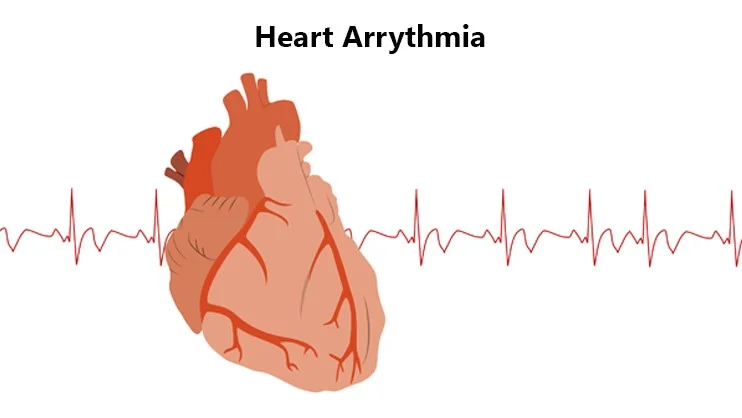Hrudayam Heart & Woman Care Clinic
Know about EP Study and RF Ablation… A Novel treatment for Arrhythmia

Why it’s done
An Electrophysiology (EP) study provides a comprehensive analysis of how electrical signals travel through the heart. Your doctor may suggest an EP study if:
If you have been diagnosed with an irregular heart rhythm (arrhythmia), such as supraventricular tachycardia (SVT) or another form of tachycardia, an electrophysiology (EP) study may be recommended. Additionally, if you have experienced recurrent fainting (syncope), an EP study can help identify the underlying cause. For individuals with certain heart conditions, this test can also assess the risk of sudden cardiac death.
What happens during the procedure ?
An Electrophysiology (EP) study is performed in a Cath Lab, typically under local anesthesia. During the procedure, long, thin catheters are inserted into three or more areas of the heart. The cardiologist places plastic tubes, similar to large IVs (sheaths), into a blood vessel and guides the catheters through them to the heart using real-time X-ray imaging (Fluoroscopy). Sensors at the catheter tips transmit electrical signals to the heart and record its electrical activity.
Various tests can be performed during an EP study, depending on your specific condition and overall health. During the procedure, a heart specialist can:
- Record the heart’s electrical activity as a baseline.
- Send signals to adjust the heart rate, either speeding it up or slowing it down.
- Administer medications to observe their impact on the heartbeat.
- Map the heart’s structure to identify the optimal location for cardiac ablation to address an irregular heartbeat.
- Carry out the cardiac ablation procedure, using energy to create scar tissue that blocks abnormal electrical signals, restoring a normal heart rhythm.
The procedure has almost 99% success rate and less than 1% recurrence rate.
Until now, patients from Nagpur had to be referred to metropolitan cities like Mumbai or Hyderabad for this treatment, or senior EP specialists would visit Nagpur to provide care. With Dr. Chetan Rathi, the first electrophysiologist in Nagpur and the entire Vidarbha region, offering full-time availability in Nagpur, patients can now access this specialized care locally. Dr. Rathi received his training under the guidance of the renowned Prof. Dr. Yash Lokhandwala in Mumbai, who is a pioneer of this treatment in India.
Mob – 9324297855
